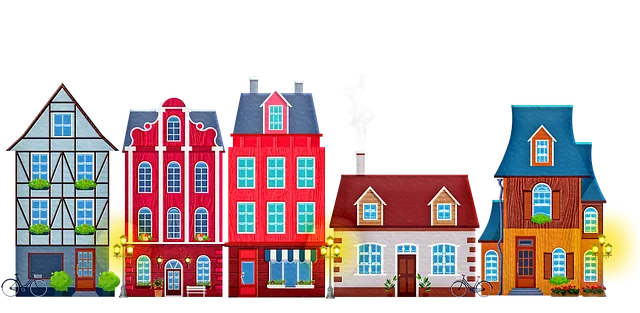Non-Fungible Tokens (NFTs) are the new Big Thing in the crypto sphere. I wanted to toss out some pros and cons for a potential use case that occurred to me when my mind should have been letting me drift off to sleep for the night.
Right now, systems vary from country to country, but land title registration is typically seen as one of the essential functions of government. After all, there needs to be some way to resolve disputes over ownership, right? And governments already claim a monopoly in dispute resolution through their law enforcement and court systems, plus they want records of who owns what for taxation purposes. But what if you're a crazy anarchist like me who sees these government monopolies as bastions of waste and abuse? What if taxation is extortion?
First, is there even a problem? There are many who argue that land ownership is a flawed concept. At the risk of oversimplification, socialists tend to think in terms of commons and collectives, and Georgists reject the idea of ownership of the comparatively permanent earth by people whose existence is so fleeting.
However, the fact remains that land is scarce, different portions have different qualities that different people value for different reasons, and there can be conflict over how to use a given parcel at a given time. We need a way to determine right-of-use, and for lack of a better term, I can use property rights as shorthand for this concept.
We already have a coordinate system based on the prime meridian and the equator. Whether we measure area in hectares or acres, we can use degrees, minutes, and seconds (remember those units?) to define points. An NFT can contain a description of coordinates, and ownership of the key defines ownership of the parcel. No state required. Easy-peasy, right? The blockchain becomes a public record to prevent fraud and clarify who has right-of-use to resolve potential conflict.

Image credit
Communal ownership of a defined parcel would still be feasible since we already have systems of multiple keys, consensus voting, and the like to address governance concerns. One need not be a greedy capitalist pig to find value in such a system. A kibbutz, commune, or cooperative could be made more efficient and transparent, too.
But what could go wrong? Lots of things, obviously. Here are a few potential issues off the top of my head.
People are not adept at keeping keys secure and safe. Further, wills may not always properly transfer keys, and people may die without any documentation. Then again, perhaps the code could address this issue internally, like our memo system here?
Cryptography may be breakable in the future, rendering the system vulnerable to unauthorized changes. But hard forks could also revise and strengthen cryptography over time.
This kind of system could be hijacked by governments to improve the efficiency of their plunder. But how can they apply liens or confiscate property if they can't control a decentralized and distributed ledger?
What happens if someone wants to split or simply abandon a parcel? Again, this would require code consideration from the start.
Real estate agents would need to radically revise their concept of their entire industry, and may be rendered almost obsolete overnight. Not a huge concern if you aren't a Realtor®, but still, people with vested interests in the legacy system hate change.
Unclaimed parcels could be subject to the digital version of what frontier surveyors did in early American history, staking land claims based on something as little as spurious Google Earth mapping. Some evidence of homesteading would need to be a criteria, and this kind of human verification layer could be a vulnerability for massive corruption.
How do you handle people who don't want to use the blockchain system? What if competing blockchains seek to better solve the same problem? How do overlapping ideas mesh together?
Many current land ownership claims are decidedly unjust, whether due to vestigial feudalism, the reverberations of colonialism, ousted aboriginal peoples whose ancestral territories and previous treaties alike have been violated by various governments, and so forth. This has been a point of significant discussion in Austro-Libertarian circles, and is by far the hardest problem to resolve. I don't have even a basic framework for an equitable solution here.
What do you think? I hate the "blockchains will solve everything ever" bandwagon, but this is, I think, a novel use case worth considering. Some problems can be addressed in code, but this kind of a global project, even if incorporated at a small scale, has many human elements to address, too. I have no idea whether it's a good idea or not, so please, chime in!